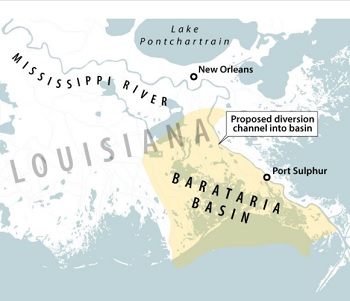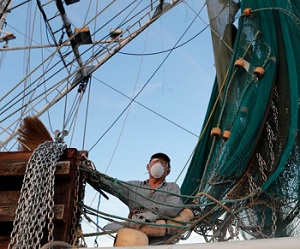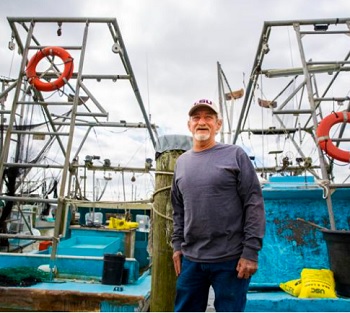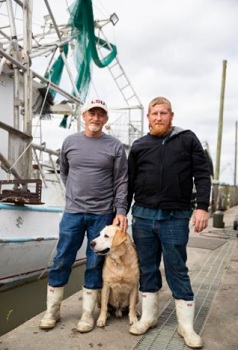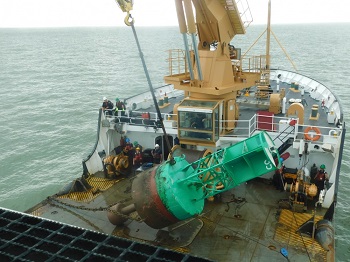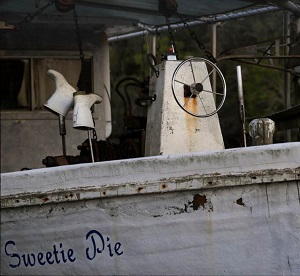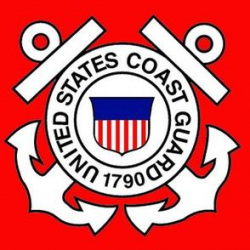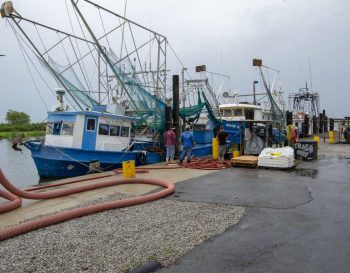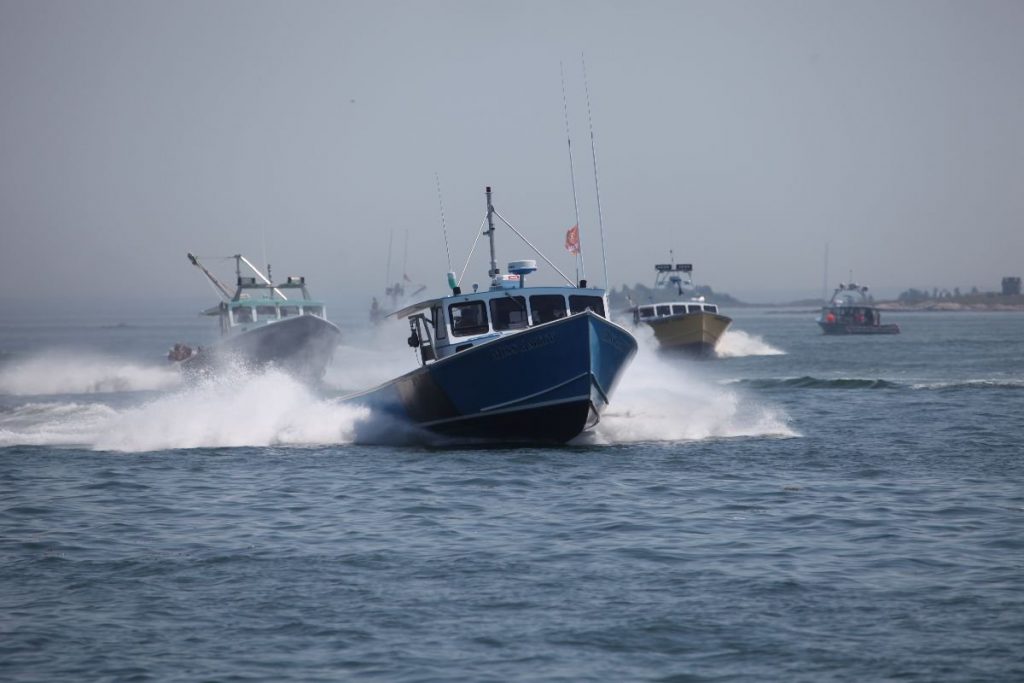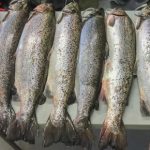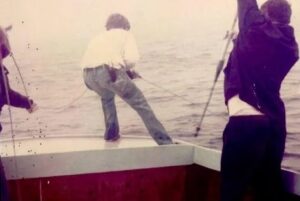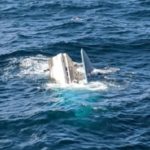Tag Archives: Louisiana
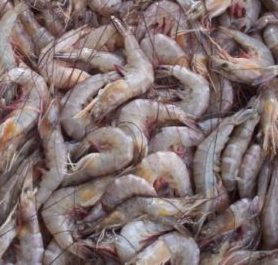
Louisiana sues NMFS over ‘devastating’ rule for its shrimpers
Louisiana has sued the National Marine Fisheries Service in New Orleans federal court to stop it from implementing a regulation that obliges certain shrimp fishermen to install devices that keep endangered sea turtles out of their catch. In a Wednesday complaint, Louisiana Attorney General Jeff Landry said the rule that took effect on Aug. 1, about a week before the beginning of the state’s shrimping season, will have “devastating consequences” on the fishermen’s already thin profit margins, and has sowed confusion with fishermen unable to find enough suppliers of so-called turtle-excluder devices for their fishing nets because the coronavirus pandemic has disrupted the supply chain. >click to read< 19:38
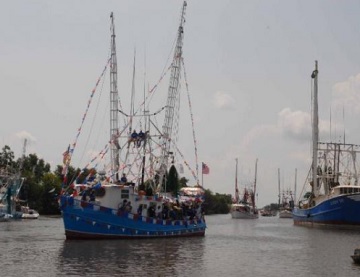
Delcambre Shrimp Festival, Blessing of the Fleet Set for August 18th – 22nd
From shrimp to sugar and gumbo, Iberia Parish is getting ready for the busy fall festival season with three major festivals to be held in person this year. Shrimp rules at the Delcambre Shrimp Festival, which celebrates the town of Delcambre’s local shrimping industry with a street fair, delicious dishes and top notch entertainment. This year’s festival is set for Aug. 18-22. >click to read< For more information and the complete schedule of events, visit ShrimpFestival.net or email info@shrimpfestival.net
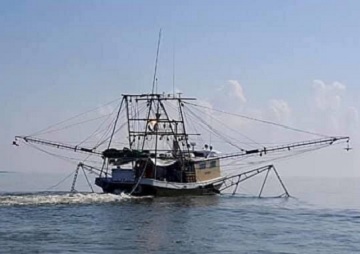
Persistence, ability to overcome adversity keeps this local trawler going after 30+ years
The job of a trawler is the same every day: catch shrimp. But the opponent one is up against (weather, seas, Mother Nature) is always slightly different each day. Being able to adjust to the unknown is Thomas Crosby’s specialty on the water. It’s a skill he believes allows him to be a good fisherman. The captain of the ‘Limited Edition’ since the late 1980s, Crosby has been on the water for as long as he can remember. The experienced captain said a good trawler is capable of adapting, adjusting and rolling with the punches, even if they come often and from a lot of unexpected directions. >click to read< 18:28

Sen. John Kennedy – Sea turtle regulations hindered search for Seacor mariners
Louisiana Sen. John Kennedy criticized the National Oceanic and Atmospheric Administration in a letter this week, claiming regulations for shrimpers caused an unnecessary hindrance in the search for missing Seacor Power members. Kennedy said he issued his letter after volunteers with the Cajun Navy said NOAA voiced strong opposition to the use of trawling nets in the recovery effort due to concern over federal regulations related to sea turtles. Kennedy alleges in his letter that NOAA would not allow volunteer shrimp boats to use nets with tied turtle excluder devices, knowns as TEDs, for recovery efforts. >click to read< 09:09
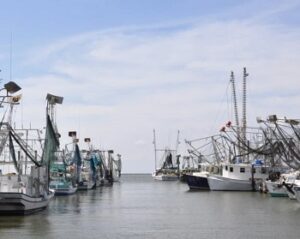
Garret Graves calls CARES Act funding for Louisiana fisheries a ‘slap in the face’
U.S. Congressman Garret Graves released the following statement regarding the $12,477,165 allocated to Louisiana fisheries to mitigate the economic hardships accrued by the COVID-19 pandemic. However, the Louisiana Sixth District Congressman is “baffled” only 4.9 percent of the available funds was provided to Louisiana despite being one of the top fisheries states in the nation. Last year, under the Coronavirus Aid, Relief, and Economic Security Act (CARES Act), Louisiana received $14.7 million of the $300 million allocated. Rep. Graves’ statement >click to read< 21:00
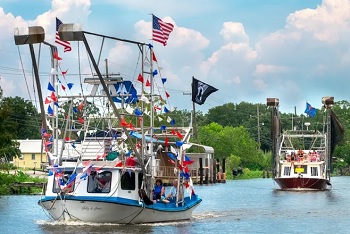
Back on the Bayou: Local shrimp boat blessings return after a year lost to COVID
In a decades-old tradition, Catholic churches in fishing communities throughout south Louisiana lead the blessings in hopes of a safe and prosperous shrimp season. This year, the Rev. Antonio Speedy of Holy Family Catholic Church said the Blessing of the Fleet in Bayou Grand Caillou will look more like normal but will still have to keep the pandemic in mind. “It will be mostly family units on the boats, and it’s an outdoor event, so there will be plenty of wind blowing around, but we still have to stay prudent.” >click to read< 10:02
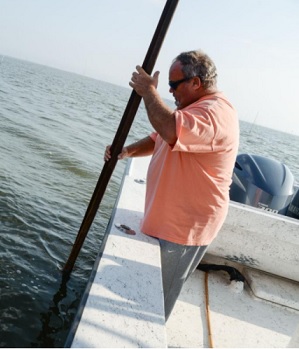
Massive, unexplained bivalve die-off sends many Louisiana oystermen back to square one
Mitch Jurisich, a third-generation oysterman, dropped a long pair of oyster tongs into the Gulf of Mexico and lightly raked the water bottom. When he brought up his catch, all but one were dead. The more resilient hooked mussels, typically found clustered along the area’s oyster reefs, had suffered the same fate. The stench of rotting bivalves filled the air. “That’s the smell of death,” Jurisich said. Early this month, millions of pounds of oysters in leases that line Plaquemines Parish’s west bank were found dead, their mouths agape. It’s unclear why. >click to read< 10:15
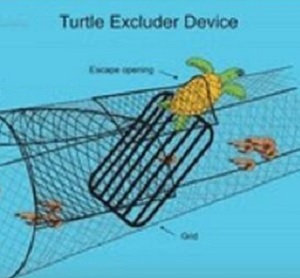
Gov. Edwards announces program to help Louisiana shrimpers
Gov. John Bel Edwards announced the creation of a $250,000 program that will pay part of the cost shrimp fishermen will have to pay for mandated devices to protect sea turtles and other animals from getting trapped in their nets. The Louisiana Department of Wildlife and Fisheries will operate the Skimmer Turtle Excluder Device Reimbursement Program (STEDRP), which will reimburse up to 60 percent of the cost for two skimmer Turtle Excluder Devices, commonly called TEDs. >click to read< 12:02
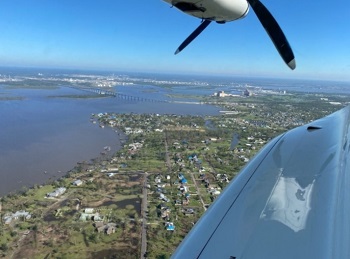
Coast Guard conducts overflight of areas near Lake Charles affected by Hurricane Delta
The Coast Guard is conducting critical incident search and rescue overflights Saturday along the Western Gulf Coast Region for Hurricane Delta post-storm operations. A Coast Guard Aviation Training Center Mobile HC-144 Ocean Sentry aircrew conducted overflights near Lake Charles to assess damage and identify hazards. Coast Guard MH-60 Jayhawk helicopter and MH-65 Dolphin helicopter aircrews conducted overflights near Lake Charles and other impacted areas. As of 1 p.m. Saturday, there have been no reports of Coast Guard post-storm emergency distress calls, or search and rescue incidents.photos, >click to read< 16:03
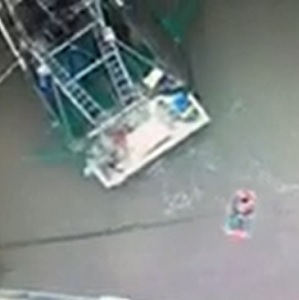
Coast Guard rescues 2 fishermen from disabled 48-foot shrimp boat
The Coast Guard rescued two people from a commercial fishing vessel Sunday near Lake Borgne. Coast Guard Sector New Orleans watchstanders received a report of two people aboard the disabled 48-foot shrimp boat Sau Nguyen taking on water due to inclement weather. >video, click to watch< 09:50
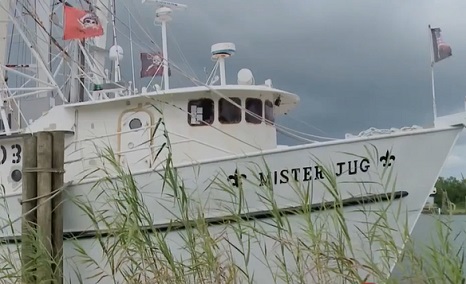
A longtime shrimper says he plans to ride out Hurricane Sally
A longtime shrimper says he plans to ride out Hurricane Sally on his boat, just like he has with storms for the past 40 years. “I’m joined now by Ronald Fran who is a longtime shrimper, and you’ve ridden out hurricanes for the last forty years right here on this shrimp boat. WDSU Reporter Jennifer Crockett has his story. >click to watch the video< 08:32
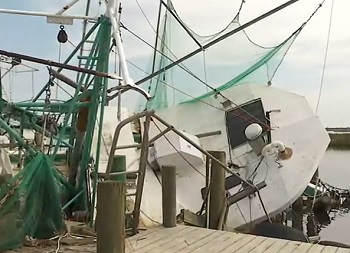
Blue Horizon Seafood closed their doors and evacuated for Hurricane Laura. Half of their boats did not survive.
One Hackberry business is dedicated to serving its community with the freshest seafood, but after being hit by Hurricane Laura, they’re not sure when they’ll be able to reopen. Out of the 27 boats docked at Blue Horizon only 14 survived the storm. “The boats that went down they can’t be recovered, they’re all tore up just like this right here and 11 of our fleet is down I think there’s only about 14 left in the fleet. But everyone Is trying to pick up the pieces at the house and they’ll come to see what they can do with the boats.” video, click to read< 12:52
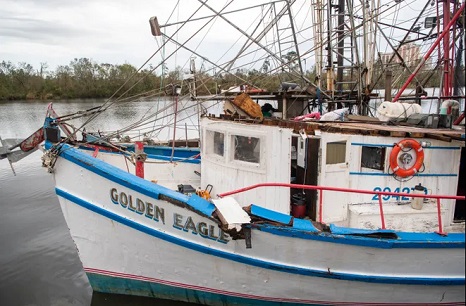
Hurricane Laura: Shrimpers rescue each other from sinking boats while riding it out
Phillip “Rooster” Dyson Jr., held onto an industrial icebox on the back deck of his 50-foot shrimping trawler and prayed for daylight. He thought of his four children and the rest of his family and realized he might not live to see them again. “It was that point when you know you messed up but it’s too late to turn back,” Dyson, 36, recalled. “It was a living nightmare.” But the shrimpers of Cameron did what they do each time a storm approaches: They motored their trawlers 30 miles inland, tied them to a pier at the Port of Lake Charles and hunkered down in their cabins to ride out the storm. Fifteen shrimping boats tied up to wait out Laura. Only five survived, the rest sinking to the bottom of Bayou Contraband,, >Video, photos, Click to read< 17:25
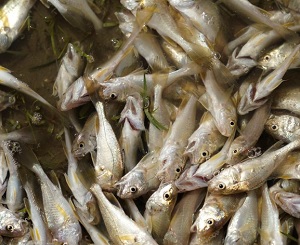
“It looks like 1,000 tornadoes went through”,,, Hurricane Laura blasts Louisiana coast with wind and wall of seawater
One of the strongest hurricanes ever to strike the U.S. pounded the Gulf Coast with wind and rain Thursday as Laura roared ashore in Louisiana near the Texas border, unleashing a fearsome wall of seawater and killing at least two people. Louisiana took the brunt of the damage when the Category 4 system barreled over Lake Charles, an industrial and casino city of 80,000 people. Laura’s powerful gusts blew out windows in tall buildings and tossed around glass and debris. Police spotted a floating casino that came unmoored and hit a bridge. >photos, click to read< 15:59
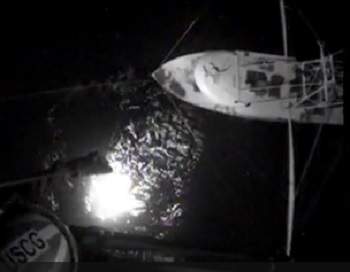
Coast Guard assists a 77-foot fishing vessel taking on water
The Coast Guard assisted a 77-foot fishing vessel taking on water near Freshwater Bayou, Louisiana, Wednesday. Sector/Air Station Houston-Galveston watchstanders received a report of a 77-foot fishing vessel with three fisHermen, aboard taking on water. Watchstanders issued an urgent marine information broadcast and launched a Coast Guard Air Station Houston MH-65 Dolphin helicopter aircrew and a Station Sabine Response Boat-Medium boat crew to the scene. Once on scene, the Air Station Houston helicopter crew lowered a rescue swimmer and a dewatering pump to the vessel, F/V Capt. Cardin. The source of the flooding was secured and the vessel was dewatered. Video, >click to read< 17:12

Convicted killer granted new hearing
A Dulac man convicted by a split jury five years ago in the shooting death of a shrimp boat captain has been granted a new hearing. On a 10-2 verdict, Richard Verdin Jr., 36, was convicted on Oct. 15, 2015 of second-degree murder of 49-year-old shrimp boat captain Hun Vo. According to authorities, Verdin was arguing with other men over a drug transaction, but the victim was not involved in the dispute. The Terrebonne Parish Sheriff’s Office responded to a 911 call on June 24, 2012, regarding a man who was shot to death on a docked shrimp boat at Jensen’s Seafood in Dulac. The victim, identified as Vo, died from a single gunshot wound to the chest, the Sheriff’s Office said. >click to read< 12:15

Coast Guard searching for a fisherman in the water offshore Marsh Island, Louisiana
The Coast Guard is searching for a person in the water offshore Marsh Island, Louisiana, Monday. Watchstanders at Coast Guard Sector New Orleans received a report at about 3 a.m. that a 52-year-old male was missing from the crew of commercial fishing vessel Guiding Light 3, approximately 18 nautical miles south of Marsh Island, Louisiana. He is presumed to have fallen overboard. Involved in the search: Coast Guard Cutter Skipjack, Coast Guard Air Station New Orleans MH-65 Dolphin Helicopter aircrew, Coast Guard Aviation Training Center Mobile HC-144 Ocean Sentry aircrew -USCG- U.S. Coast Guard 8th District Heartland Contact: 8th District Public Affairs, Office: (504) 671-2020 ,After Hours: (618) 225-9008
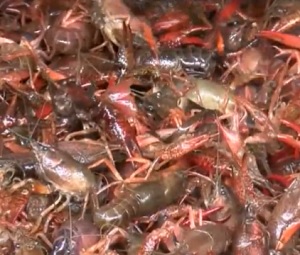
Coronavirus: Louisiana’s $2 billion seafood industry hard, leaders urge public to buy local
Louisiana’s $2 billion seafood industry is struggling. “These are all very small family-owned businesses, and they are very dependent on local sales,” Twin Parish Port Commissioner Wendell Verret said. Larger seafood businesses will also be hurt. As demand for seafood goes down, they’ll be stuck with too much inventory. When businesses stop buying seafood from fishermen, the effects could be disastrous. “Once the fishermen are impacted and they cannot continue to fish, they lose their boats. They lose their equipment. Video, >click to read< 07:09
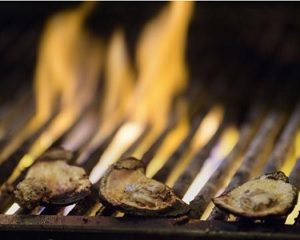
‘It’s grim.’ After spring floods, Louisiana oyster harvest slows to a trickle
Fall is when Louisiana normally begins harvesting a torrent of oysters. This year, the torrent is barely a trickle. Restaurants have resorted to rationing. They’re reaching far beyond their normal local supply chains to get whatever boxes and sacks of oysters they can find, revising menus and tapping stockpiles of frozen product to keep fried oysters on their po-boys and seafood platters. Many in the business are calling the shortage the worst they’ve ever seen, worse than the aftermath of hurricanes Katrina and Rita in 2005 or the BP oil spill disaster in 2010, both of which devastated the local industry. Photo’s >click to read< 08:29

Fisheries disaster declared in multiple fisheries, multiple states
Wednesday,, Secretary of Commerce Wilbur Ross announced his determination that commercial fishery failures occurred for multiple fisheries between 2017 and 2019 in Alaska, California, Georgia, and South Carolina, while further finding that a catastrophic regional fishery disaster occurred for Louisiana, Mississippi, and Alabama due to extreme flooding events in the Gulf of Mexico. >click to read< 17:41
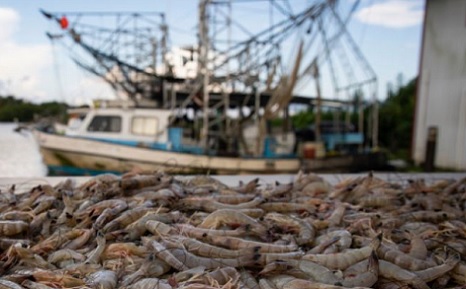
Gulf Coast seafood industry slammed by freshwater from floods, states requesting federal fishery disaster funding
The governors of Louisiana, Mississippi and Alabama asked months ago for U.S. Commerce Secretary Wilbur Ross to declare a fisheries disaster, a designation needed to secure federal grants for those whose livelihoods were affected in the Gulf region’s vital seafood industry. Alabama canceled its oyster season. It will be months before all the figures are in and the analysis completed to tell which Louisiana fisheries qualify, said Patrick Banks, assistant secretary for fisheries in the Louisiana Department of Wildlife and Fisheries. >click to read< 12:47
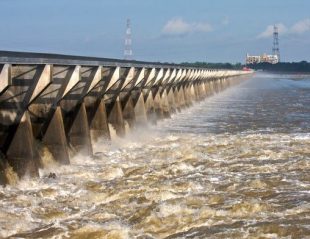
Floodwaters Diverted from New Orleans Killed Off Marine Life
The federal government’s effort to avoid a flood disaster in New Orleans had catastrophic consequences of its own, causing massive fish kills and habitat destruction along the Gulf Coast, according to the governors of Louisiana, Mississippi and Alabama. The governors say the Army Corps of Engineers’ diversion of trillions of gallons of water from the swollen Mississippi River into the Gulf of Mexico killed fish, shrimp, oysters and crab and forced the extended closure of beaches. Dolphins have suffered high death and infection rates, researchers say. >click to read< 15:44






